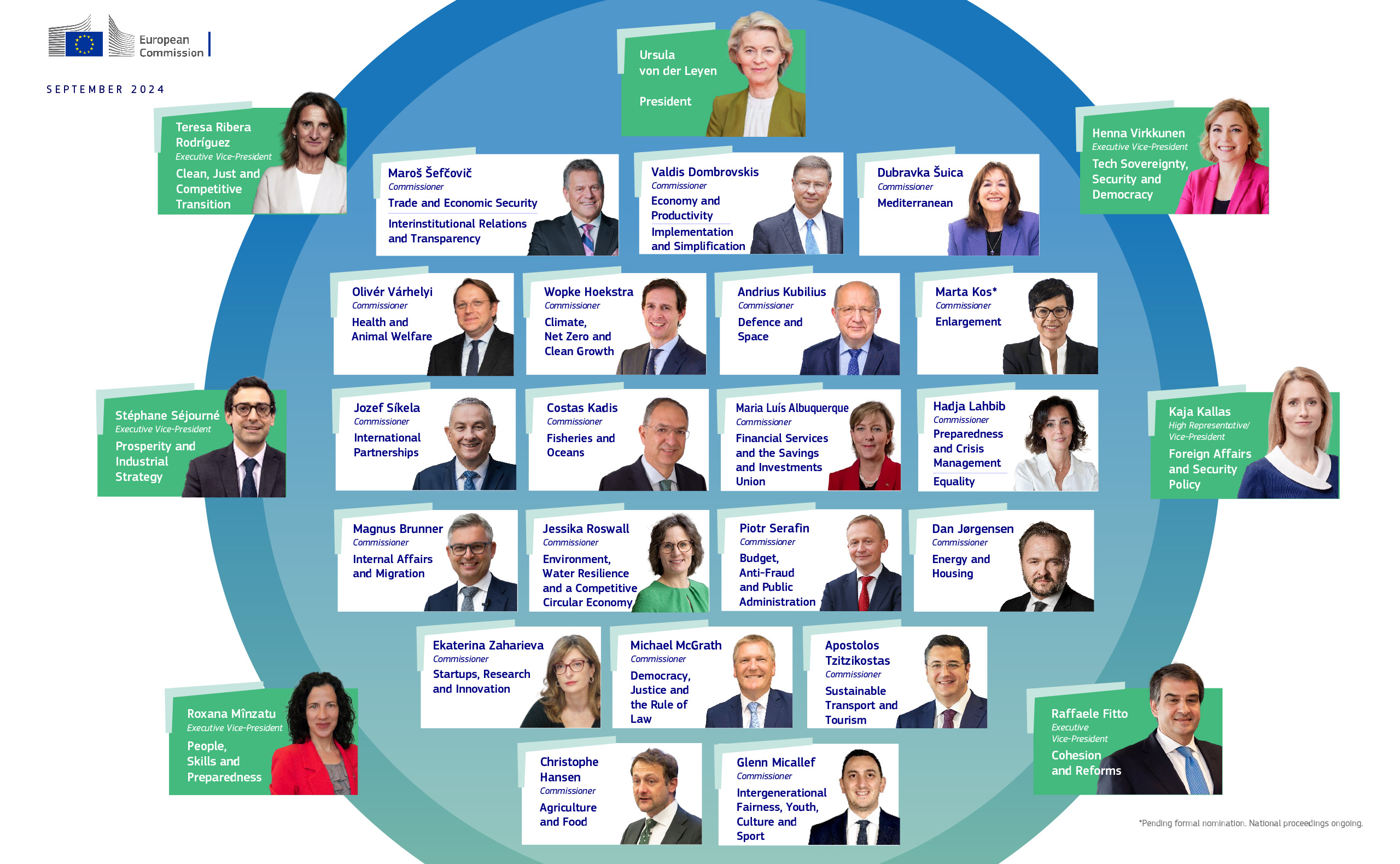
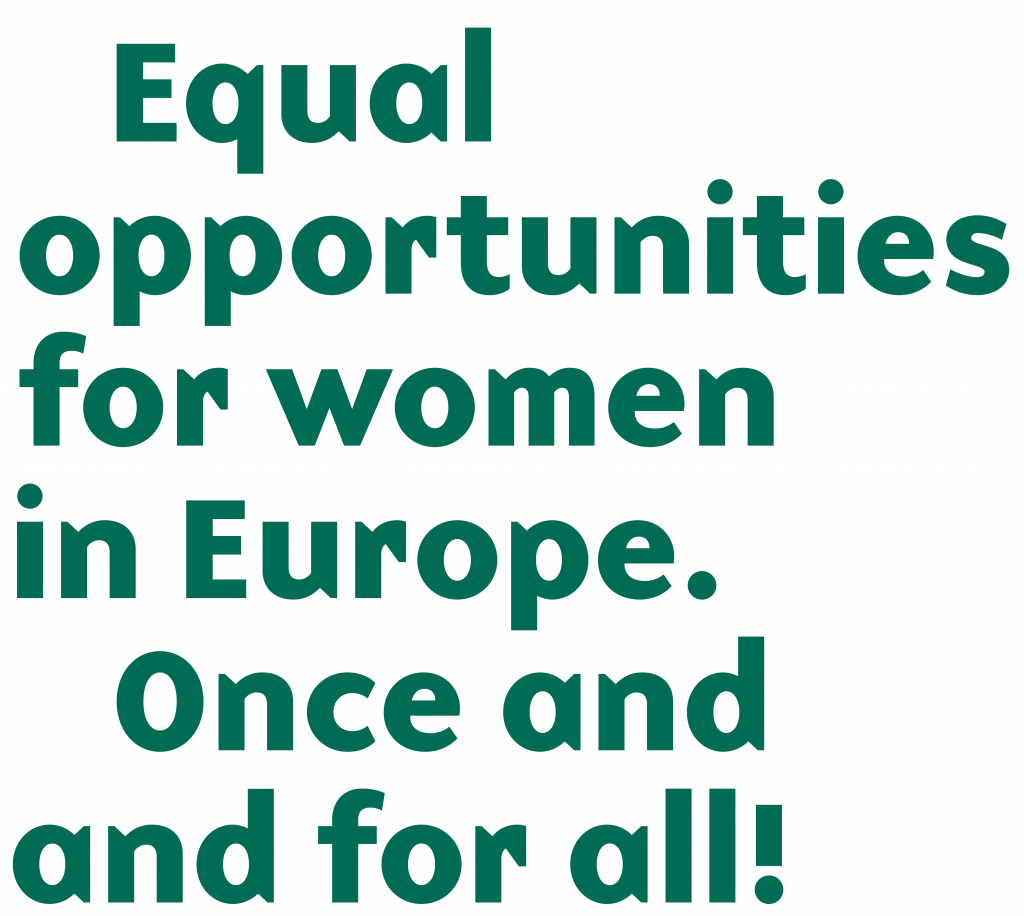
Appeal by the German Trade Union Confederation
ahead of the European election (2019)
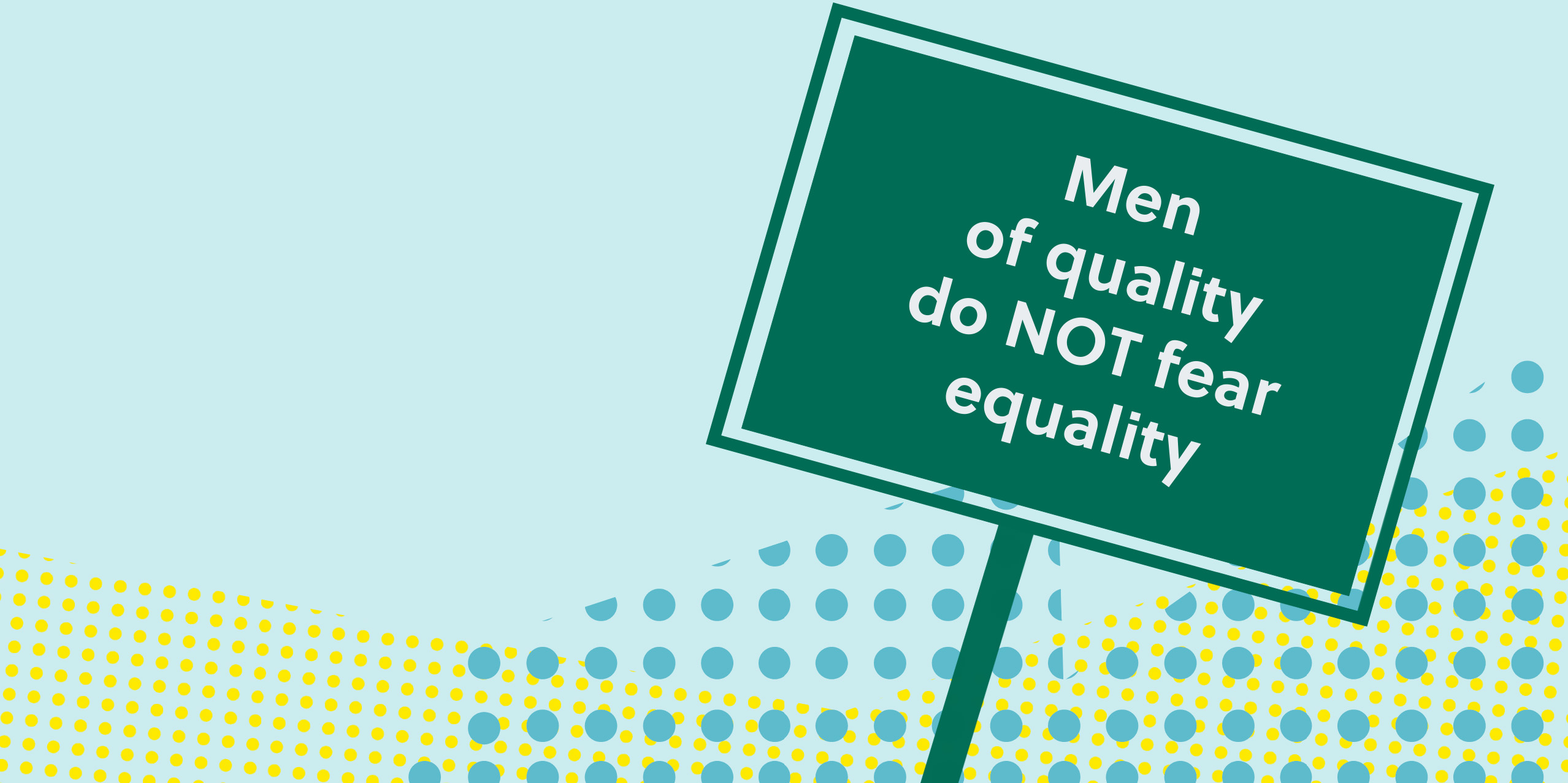
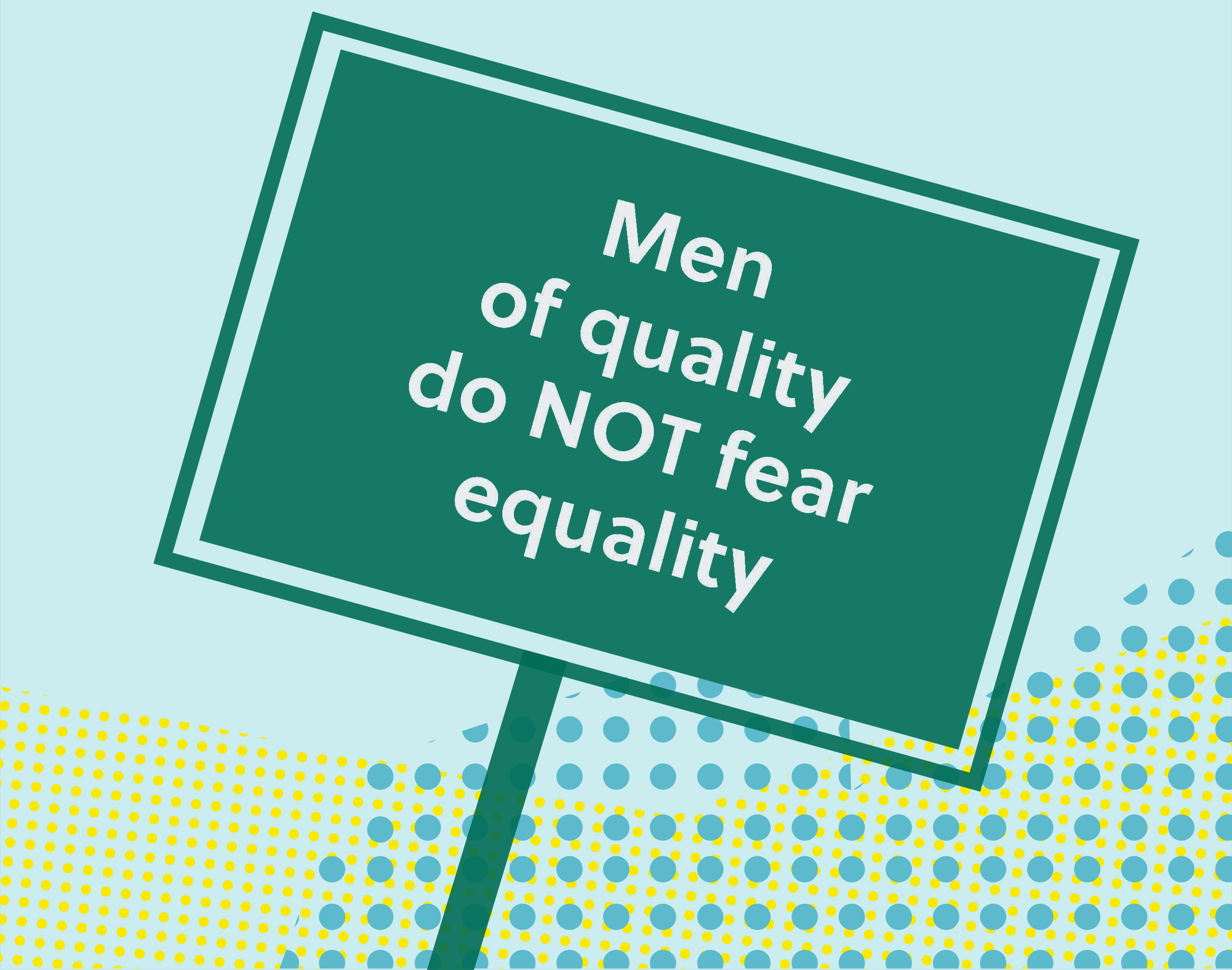
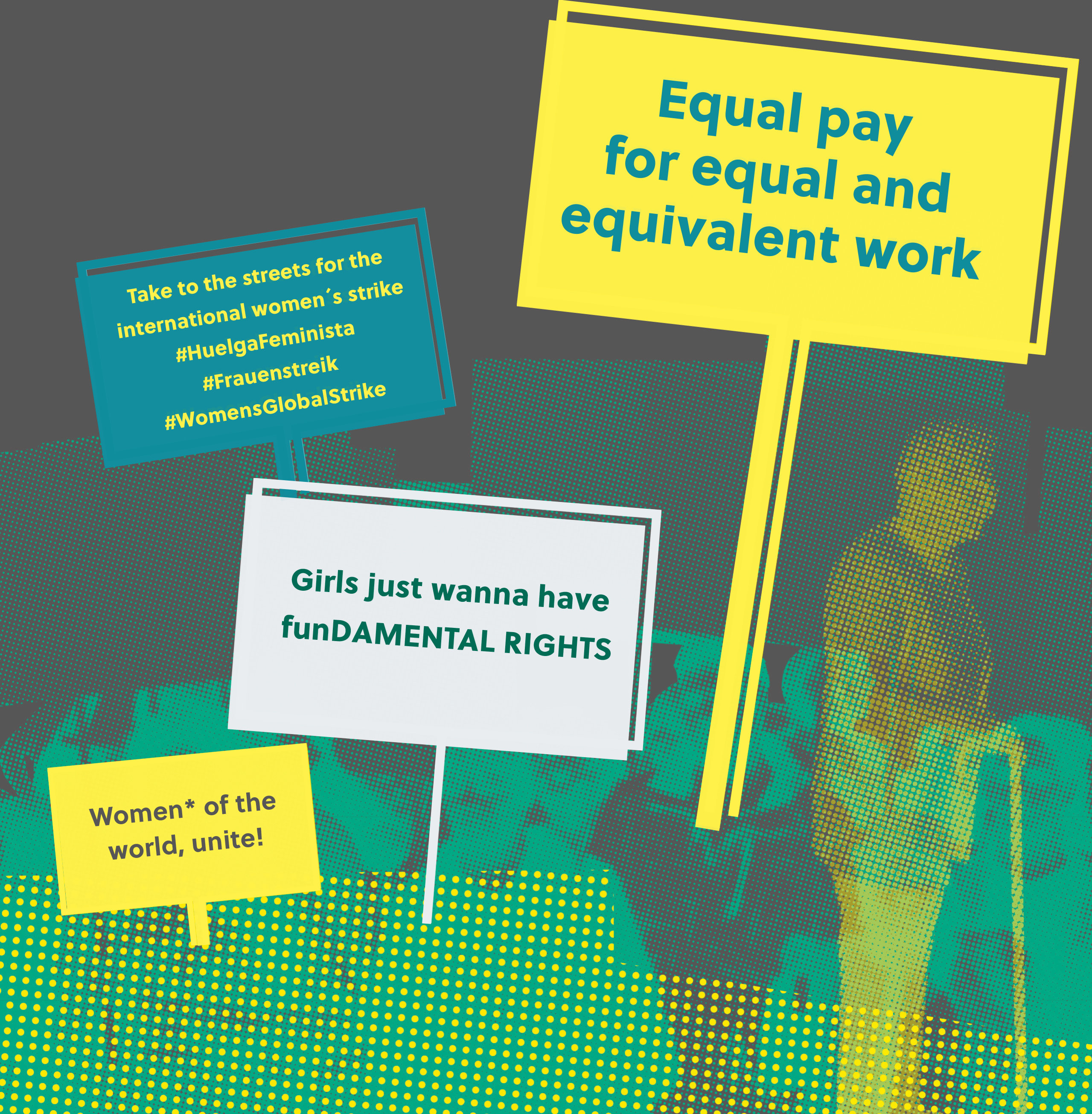
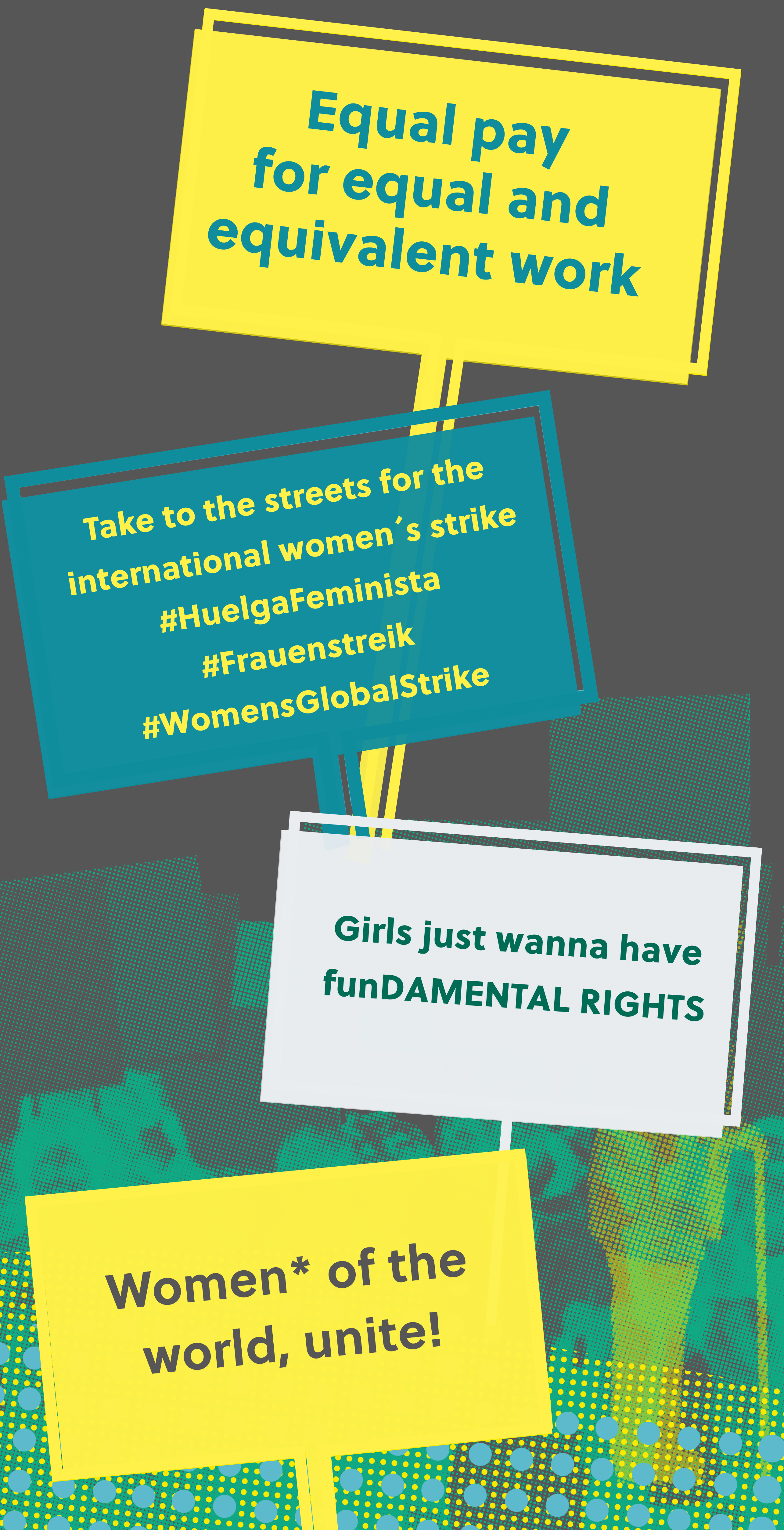
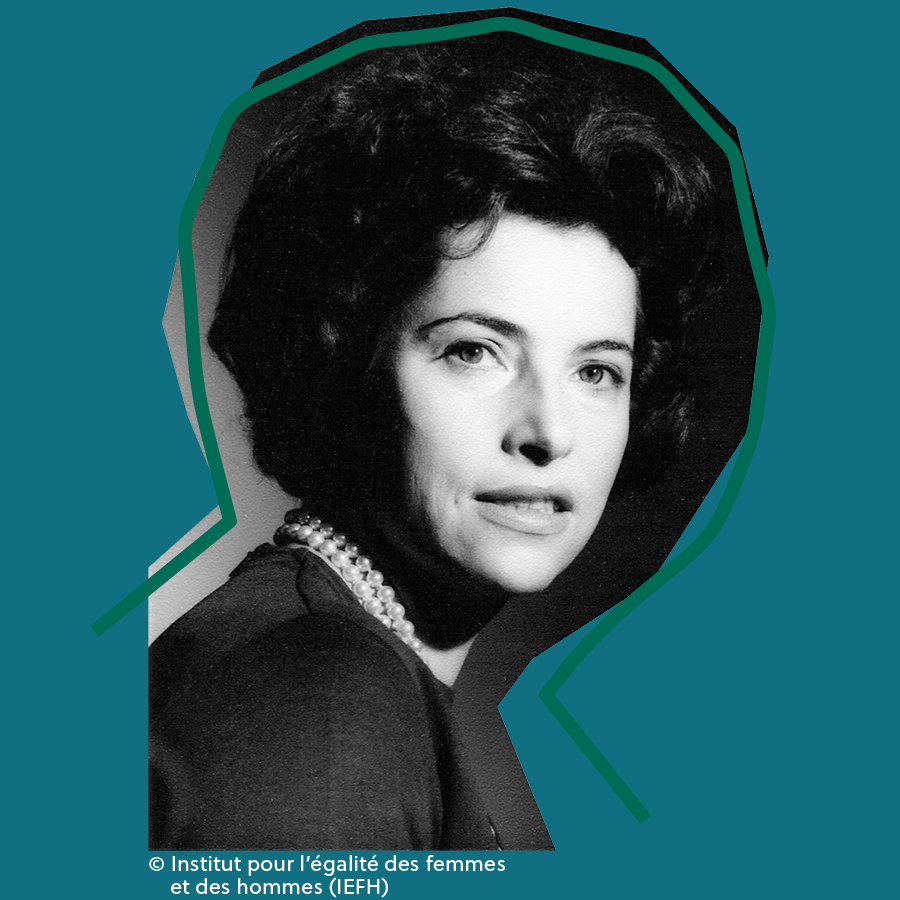
» If equal representation were recognized as a necessary condition for democracy rather than a distant consequence, the rules of the game and social norms would have to change. This would radically transform society and facilitate relationships that really are on an equal footing. «
(1994)
ÉLIANE VOGEL-POLSKY
(BE, 1926–2015)
… was a lawyer. She successfully championed the case of Gabrielle Defrenne before the ECJ. The airline Sabena had forced the Belgian flight attendant to retire at the age of 40 on account of her gender.
» Despite being born with the same formal rights as young men, young women in Europe soon become aware of the disparities between the sexes in all areas of life (business, politics, society …). […] The principle of gender mainstreaming has been much discussed, but its implementation is yet to prove efficient. «
(2019)
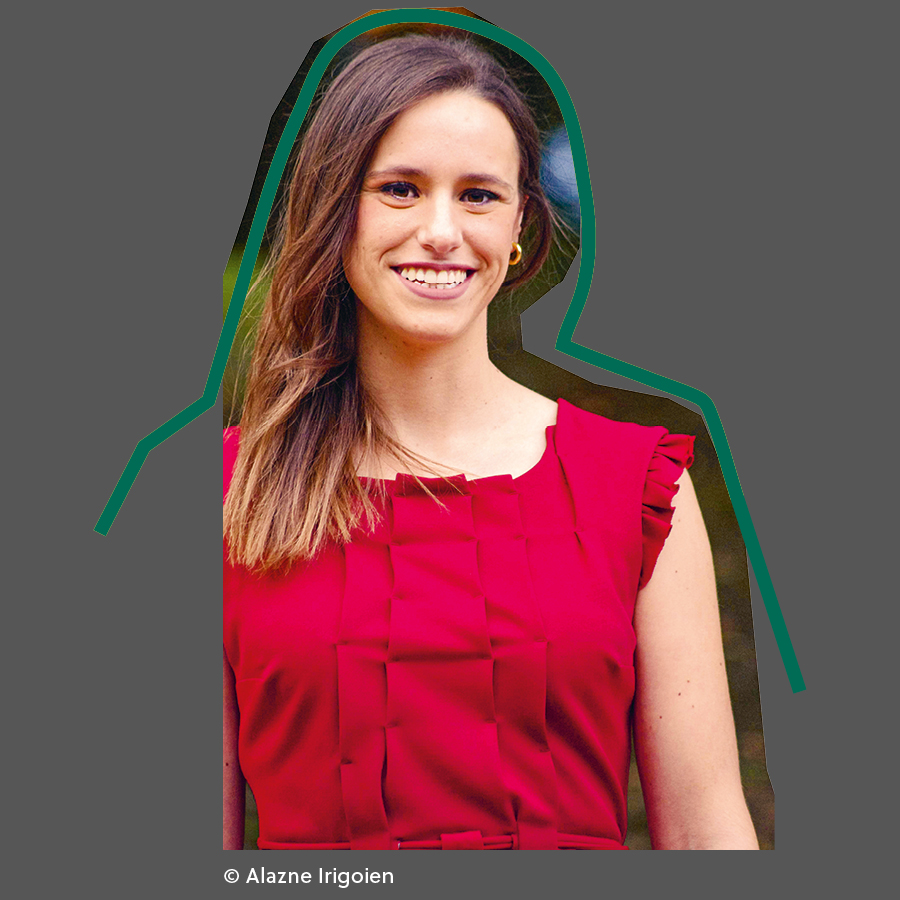
ALAZNE IRIGOIEN
(ES)
… is a researcher and gender equality expert. She works, among other things, for European think tank GENDER FIVE PLUS (G5+) and is actively involved in YOUNG FEMINIST EUROPE (YFE).


Girls just wanna have
funDAMENTAL RIGHTS
Feminist play on Cyndi Lauper’s hit song
The legal definition of equality has been pinned down over time through numerous judgments by the European Court of Justice (ECJ). The original intention here was to break down the barriers impeding women’s professional lives.
A milestone was celebrated in the judgment of the DEFRENNE II case (1976). The ECJ ruled that the principle of equal pay for equal work (Article 119 of the EEC Treaty) is one of the founding principles of the EU and that anyone affected could also invoke this article before the national courts.
Based on this, the European Commission drew up gender equality directives that addressed employment, social security and pensions, compatibility of family and career, and access to goods and services.

» I suggest […] going through the European Court of Justice more often. At the start of the 1970s, it was important to test the limits of EU law. For me, it is crucial that we continue to push legal boundaries, especially when it comes to developing and expanding discrimination policies. «
(2019)
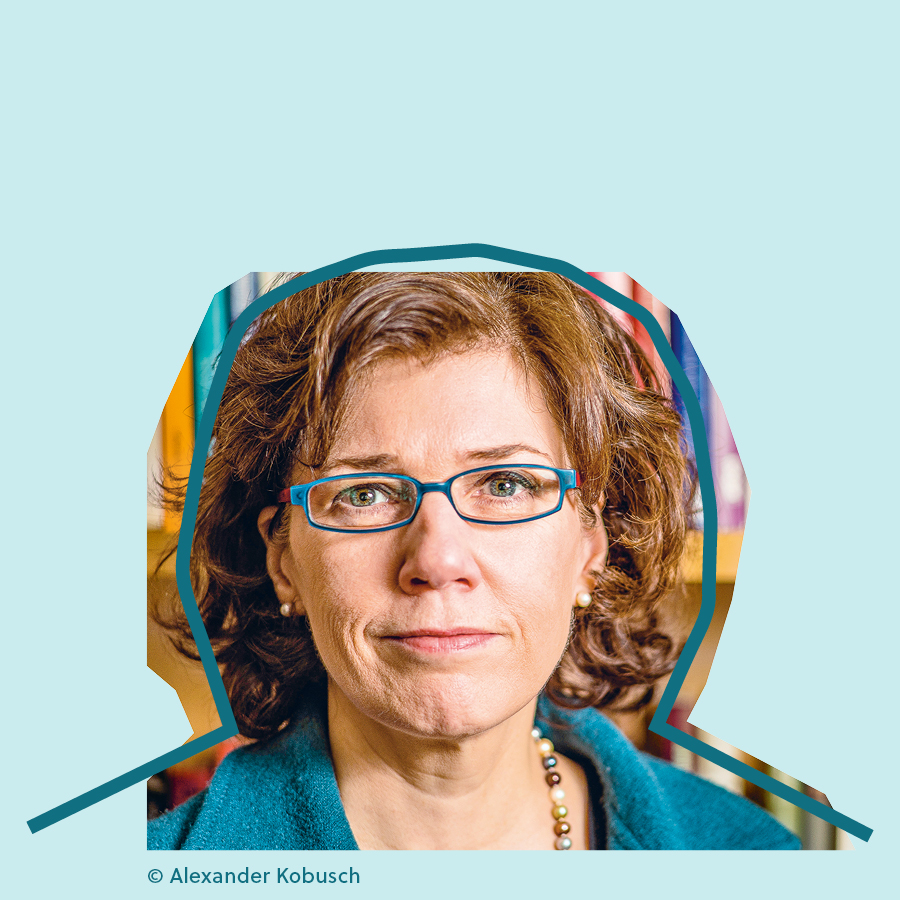
GABRIELE ABELS
(DE, 1964)
… is professor of comparative politics and European integration at the Institute of Political Science at the University of Tübingen.

Take to the streets
for the international
women’s strike
Strike slogan for International Women’s Day on 8 March
The mere act of introducing European legal principles is not enough. Member states often put off implementing directives or only implement them in part: gender pay gap, glass ceiling, gender segregation and multiple responsibilities are still harsh realities in the European employment market.
Female migrants are hardest hit by occupational discrimination. Migrants are hardly ever afforded protection under the employment law of the destination country and, contrary to the guidelines, policies on integration, migration and asylum usually lack a gender perspective. Furthermore, the increasing employment rate among women is ascribed to the outsourcing of housework, educational work and care work to those less privileged – in many cases under precarious working conditions.
» It is vital to us that this strike draws attention to the battle of female migrants. We face triple oppression: not only are we working class women, we’re also immigrants. «
(2018)

DIANA
(Lateinamerika – ES)
… is an immigrant and activist for the socialist women’s organization PAN Y ROSAS. In 2018, she was involved in the women’s strike in Spain held on 8 March to mark International Women’s Day.

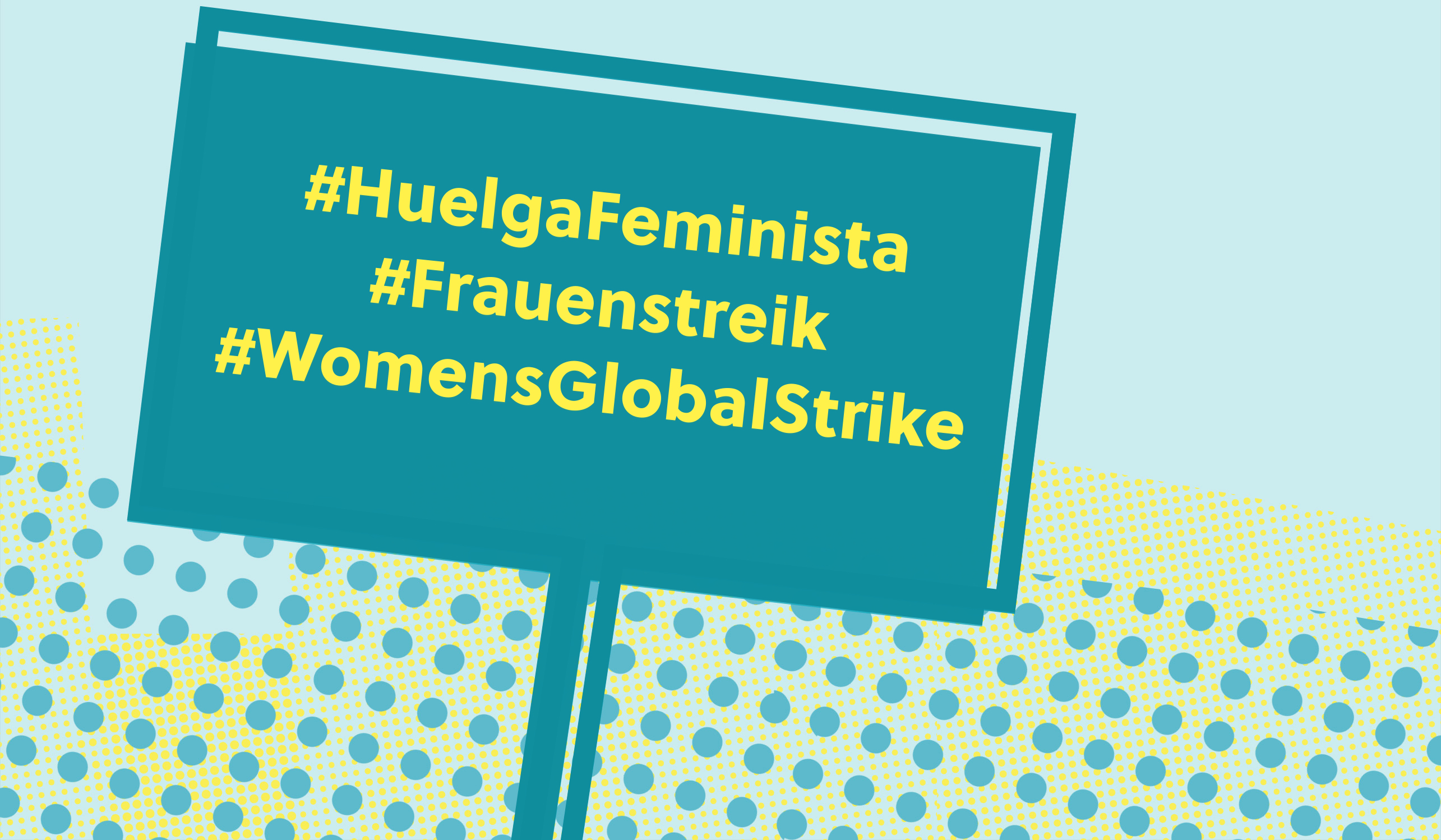
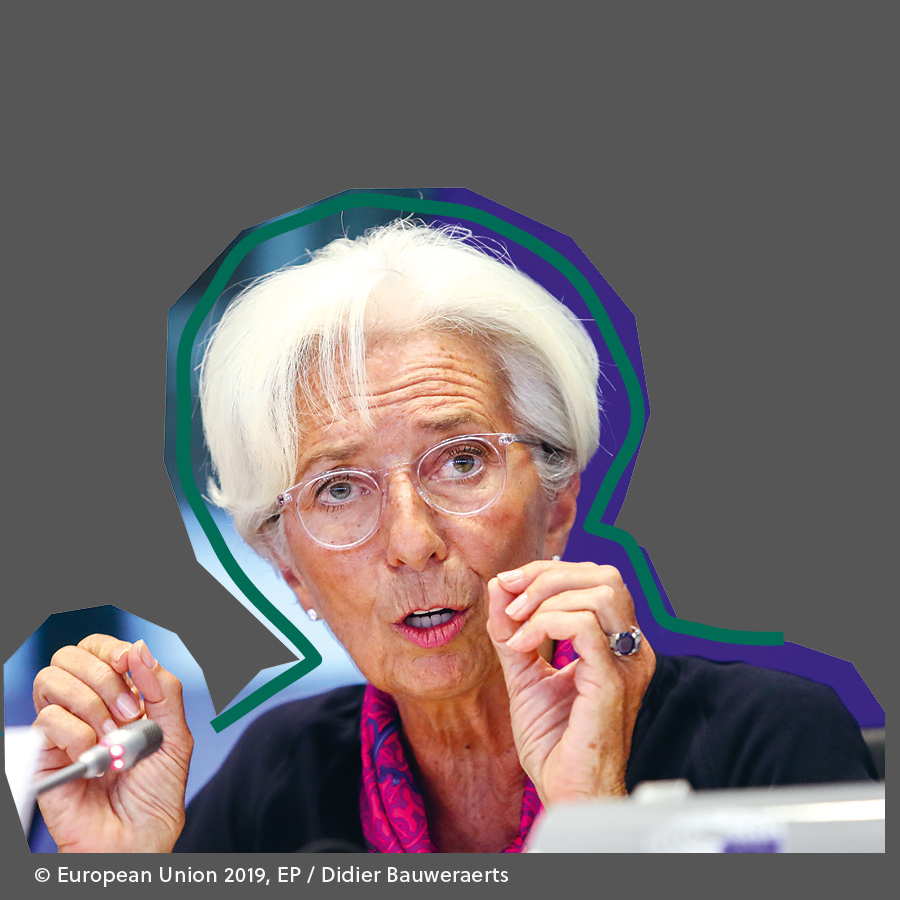
» When the financial situation is really poor […] then there are opportunities for women. I’ve always encouraged women to actually say yes in those situations. There may be a certain amount of risk involved to begin with […] but it can’t go any lower from there […]. And there are only very few men prepared to take on such tasks for fear of looking like a fool.«
(2007)
CHRISTINE LAGARDE
(FR, 1956)
… is a lawyer and politician (LR). In 2019, the former managing director of the International Monetary Fund (IMF) was the first woman to become president of the European Central Bank (ECB).
» The lack of women in corporate leadership positions is detrimental to Europe’s competitive standing and obstructs economic growth. […] I personally am not a fan of quotas. But I do welcome their results. […] I believe it’s high time Europe breaks through the invisible barrier that continues to obstruct female talent from rising to the top of listed companies in Europe. «
(2012)
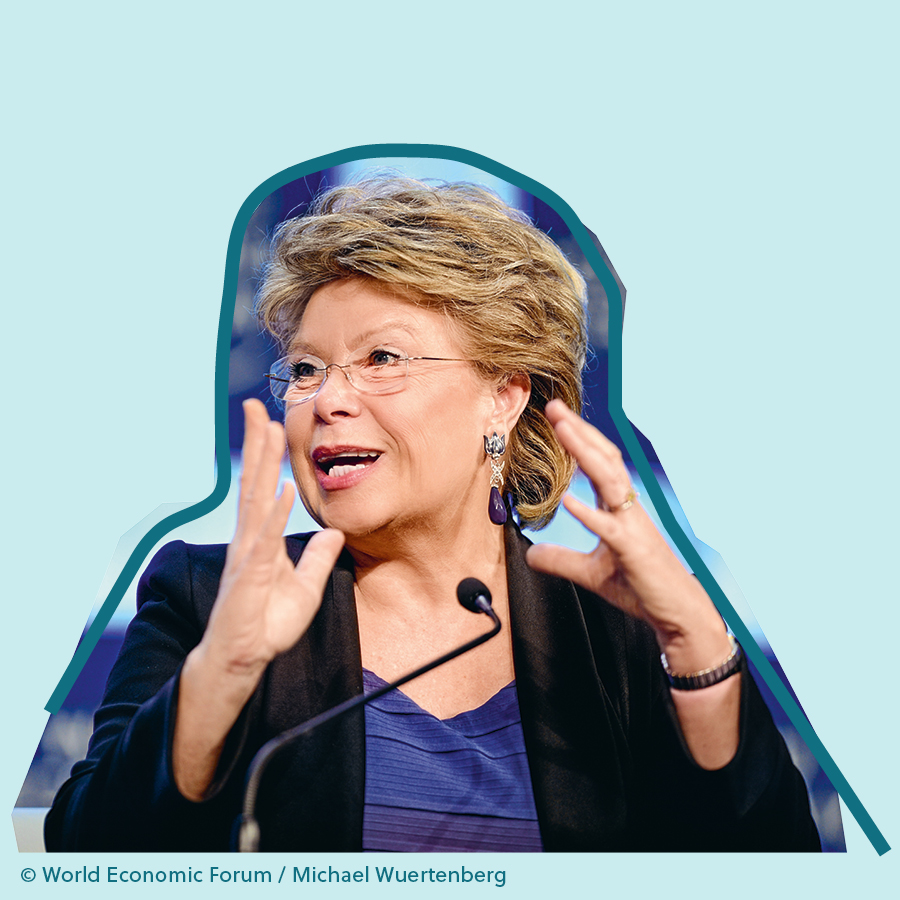
VIVIANE REDING
(LU, 1951)
… is a journalist and politician (CSV). She has been an MEP and a European commissioner several times: in 2012, as commissioner for JUSTICE, FUNDAMENTAL RIGHTS AND CITIZENSHIP, she advocated for a 40 percent quota for women in the supervisory boards of listed companies. The policy has so far foundered on the approval of the EU Council of Ministers.

More women in
leadership positions!
Appeal by the Women’s Committee
of the German Trade Union Confederation
ahead of the 2019 European election
Gender equality is about more than balancing numbers; the specific positions and tasks assumed by women are also hugely significant.
In the parliamentary term 2019–2024, two of the EU’s most senior positions were held by women for the very first time: Ursula von der Leyen is the first female president of the European Commission and Christine Lagarde is the first woman at the helm of the European Central Bank (ECB) – a high-level post in the otherwise persistently male-dominated field of economic and monetary policy.
The number of women in senior positions across the European institutions is generally on the rise. That having been said, women still face an uphill battle when it comes to accessing positions of power and essential fields of work purely because of their gender.

Gender ratio
in the
parliamentary
committees
European Parliament
February 2025
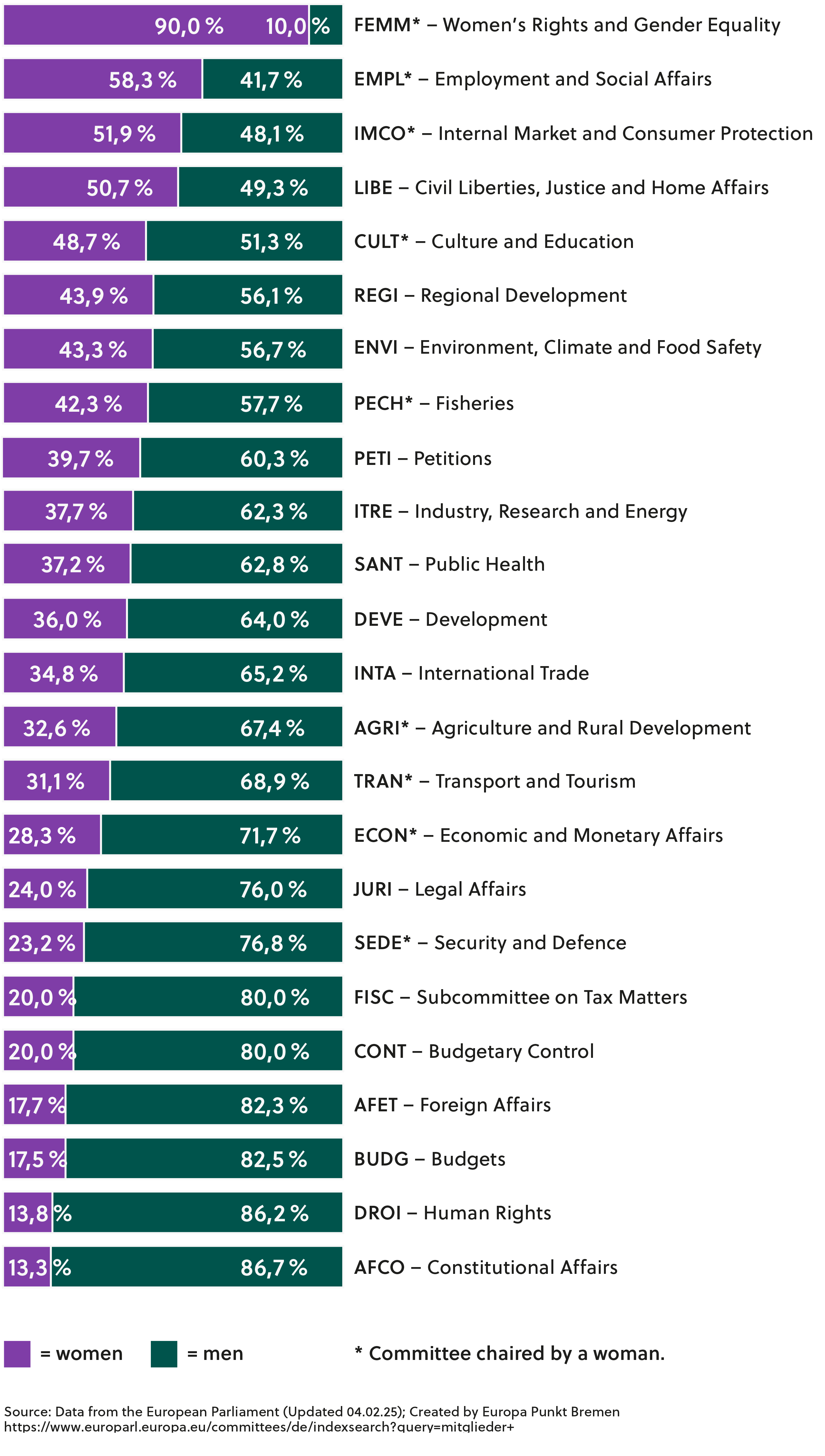
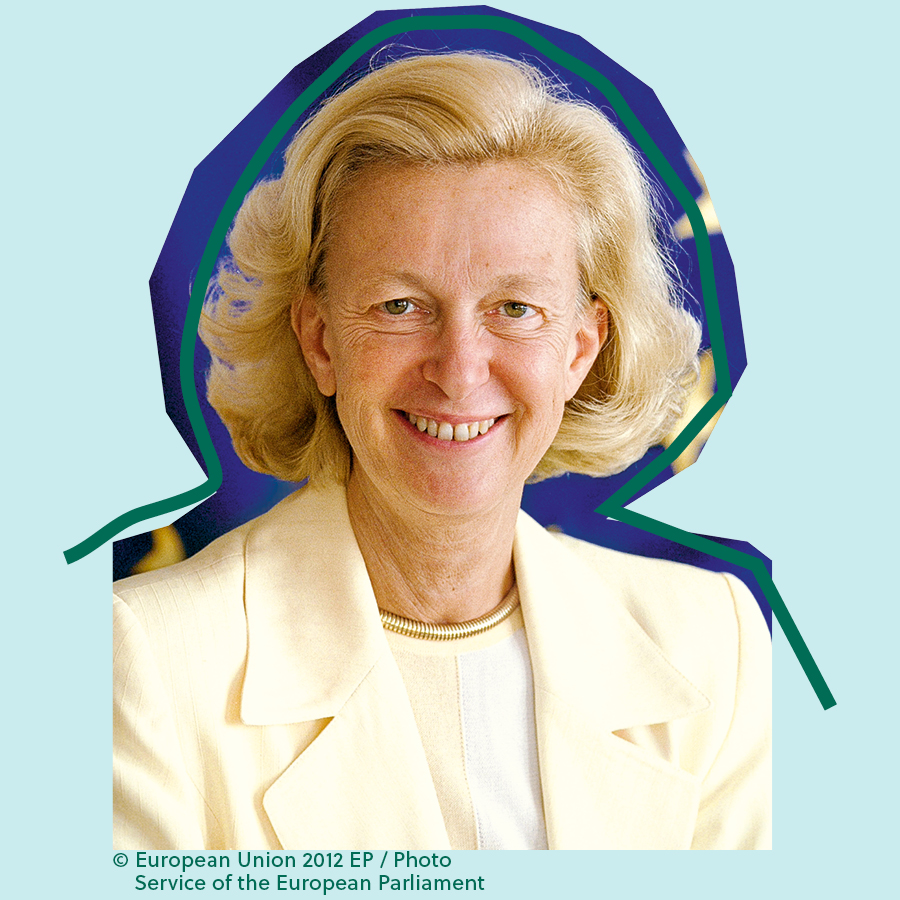
» The host [of a party at the British Embassy in France] introduced me […] as the › Minister of Culture ‹, to which I responded: › No, you mean the Minister of Industry. ‹ The disdainful look on his face spoke volumes: › A woman as the Minister of Industry! I mean, you can’t be serious. ‹ […] The stereotype was so blatant. […] Ultimately, this one moment said everything.«
(2017)
NICOLE FONTAINE
(FR, 1942 – 2018)
… was a lawyer and politician (UMP). She assumed the role of MEP several times and, from 1999 to 2002, she was the second woman after Veil to become president of the European Parliament. Her term spanned the introduction of the euro and the signing of the Charter of Fundamental Rights.


